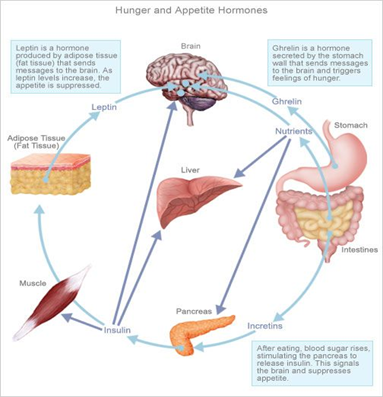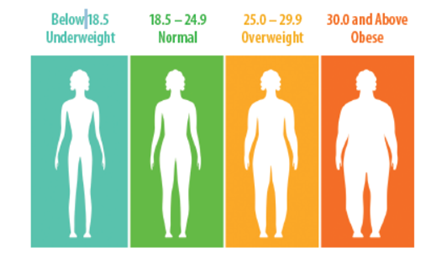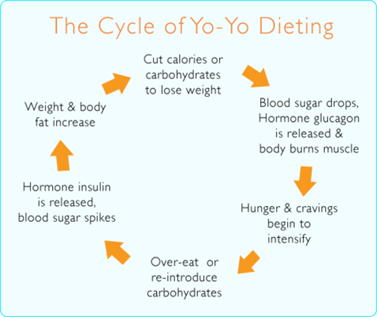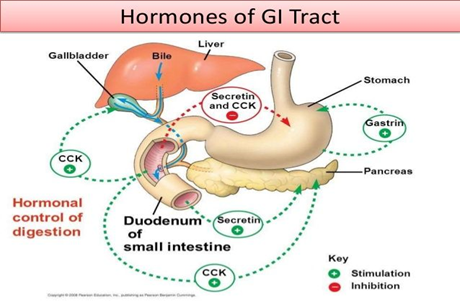
Changes in gastrointestinal hormones and leptin after Bariatric Surgery?
Medically reviewed by Dr. Manish Motwani, Bariatric & Metabolic Laparoscopic Bariatric Surgeon — Curated by Deep Kaur
Table of Contents
Facebook
Twitter
LinkedIn
WhatsApp
What is Obesity and how it occurs?
Excessive consumption of carbohydrates and fats will lead to fat deposition.
When an excess of carbohydrate is consumed, it gets converted into glycogen and will later get deposited as fat.
When we consume carbohydrate it mainly get utilize by our cells for their cellular process and functions.
With excess consumption of carbohydrates and its conversion, it results in Obesity.
50% of our daily energy intake should be from Carbohydrate.
In obesity, there is excess fat of 10-20% greater than standard body weight.
Leptin is a hormone responsible for suppressing hunger which is secreted by our brain.
In obese conditions with the presence of excess fat insensitivity to hormone leptin can occur which will result in uncontrolled hunger.
The prime reason for obese condition is when excessive amount of calorie is consumed in comparison to total energy expenditure.
Any individual with the BMI of 30 kg/m2 and above is considered as obese and require therapeutic weight loss surgery intervention.

Eating disorder, emotional eating, genetic inheritance, stress, low physical activity are all supporting factors that can lead to obesity.
With constant calorie restrict diet, plateau effect is experience where further weight loss is difficult after certain period, yo-yo effect is also experience where weight comes back immediately once diet is stopped.
When an individual has BMI of 30kg/m2 or Above, Bariatric intervention is necessary and is the solution.
Along with the Bariatric surgery a healthy diet with exercise will give the desire result which will be sustainable.
When weight is reduced, hormone secretion becomes better which leads to normal functions, thus it will further lead to betterment in the calorie intake.
How we eat and how much we eat makes a huge difference in fat loss.

What are gastrointestinal hormones and leptin, Ghrelin
They are hormones secreted in the stomach, small intestine, and pancreas by enteroendocrine cells whereas ghrelin hormone is a hunger hormone released by the liver and stomach.
Leptin creates a satiety effect in the body.

Functions of gastrointestinal hormones, leptin and ghrelin in obesity
Food ingestion releases lots of hormones.
The hypothalamus and brain stem helps in regulating the energy homeostasis.
When gut hormone release is disturbed it may affect energy homeostasis and this can result in obesity.
Gut hormones are divided into various categories such as hunger, satiety, orexigenic hormones.
When an individual is fasting in response to it the Ghrelin hormone is release from the stomach which results in meal consumption regulation.

How does Bariatric surgery can help in regulating the gastrointestinal hormones, leptin and ghrelin?
In bariatric surgery, the size of the stomach is reduce and the hormone ghrelin is secreted by stomach mainly due to the reduction in size, the secretion and release of hunger hormones decline gradually resulting in a healthy weight loss creating a satiety effect.

Eventually, the energy homeostasis will be maintained.
Medically reviewed by Dr. Manish Motwani, Bariatric & Metabolic Laparoscopic Bariatric Surgeon — Curated by Deep Kaur
Related Post



